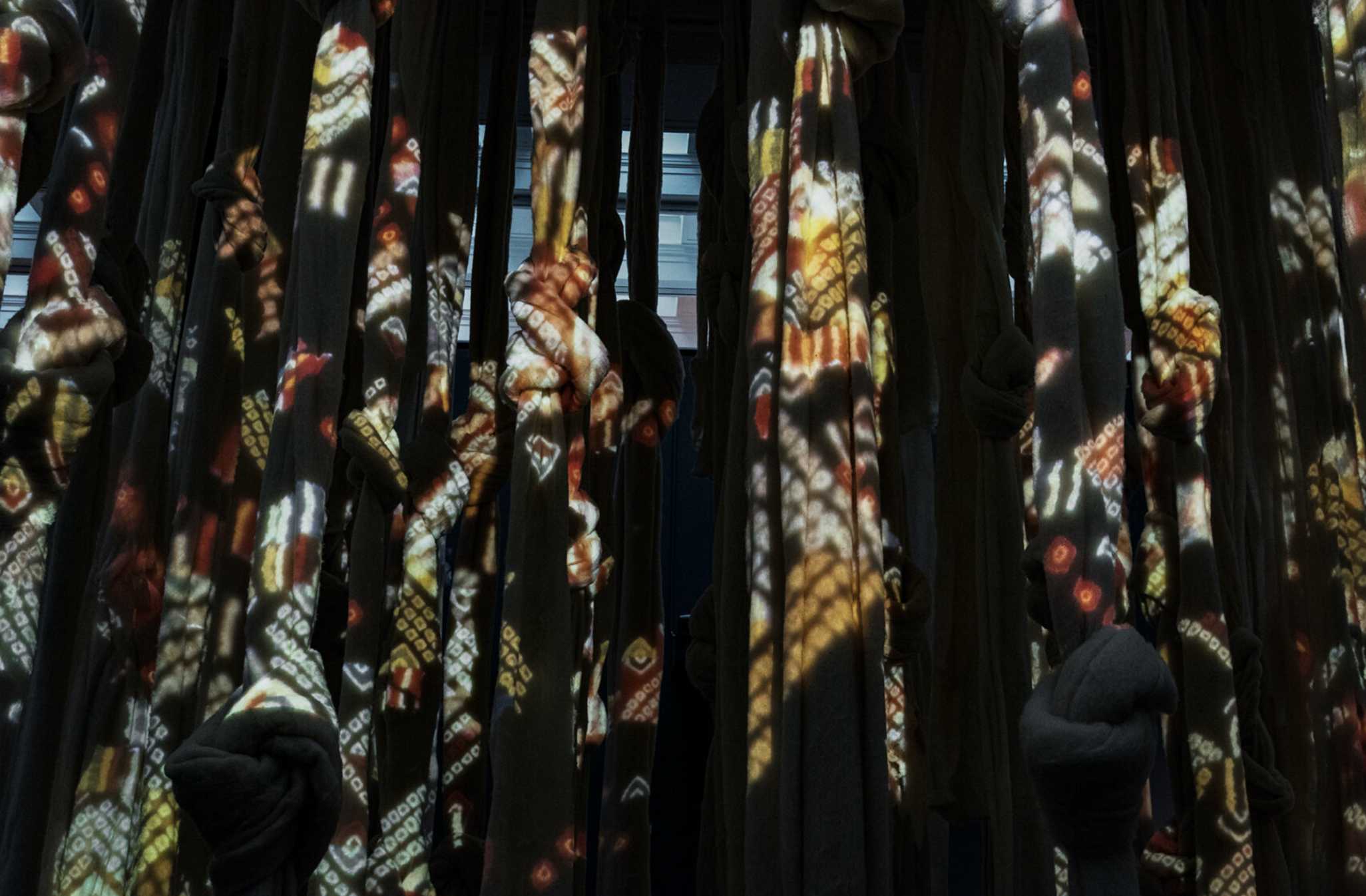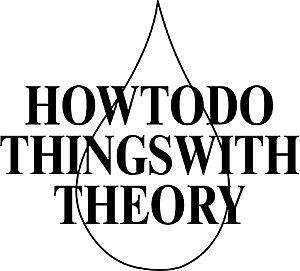2022-2023 Grant Watson's seminar: A Fabric Instead of a Lecture
INTRODUCTION:
Departing from a line by Fred Moten and Wu Tsang this seminar will return to ideas and sources from previous seminars which overlap queer theory and left politics but here through the lens of textiles. Using a series of case studies, works, textiles and texts, it will workshop approaches to reading and writing, making projects, and attaching thinking to materials and practices. During the seminar we will look at how queer theorist Eve Kosofsky Sedgewick explores textiles and texture in relation to thought, in a move away from theory’s unmasking of epistemic, ideological and institutional frames to an analysis concerned with feeling and touch, intimacy and proximity.
By contrast Gayatri Spivak in her discussion of textiles, uncovers chains of production and consumption, starting with the clothes she wears, as evidencing economic histories shaped by asymmetric power relations, the product of colonialism and neo-colonialism - building on and deconstructing Marx, who positioned the cotton trade in relation to his analysis of 19th Century capitalism, colonisation and slavery. We will look at the work of academic/activist Rosemary Hennessy, who through interviews and academic writing asks if the term “bio-deregulation” can describe both the experience of queer garment workers in the global south, whose marginalisation is levered to deregulate working conditions, and the affluent queer consumers of their products in the north who experience a parallel if different kind of deregulation in terms of legal and moral strictures. The course will also consider quipu – like works such as “Gravitational Feel,” a collaboration between Fred Moten and Wu Tsang, made from an environment of knotted threads as a space of study, as well as historical examples of pedagogical experiments in haptics from the early 20th Century by Moholy-Nagy and others.
Preliminary reading list:
Adarkar, Neera, and Meena Menon. One Hundred Years One Hundred Voices, The Millworkers of Girangaon: an Oral History. Kolkata: Seagull Books, 2004.
Engels, Friedrich. The Condition of the Working Class in England. (1845). Panther Edition, 1969. Marxist Internet Archives. https://www.marxists.org/archive/marx/works/download/pdf/condition-working-class-england.pdf.
Hennessy, Rosemary. Fires on the Border: The Passionate Politics of Labour Organising on the Mexican Frontera. Minneapolis: University of Minnesota Press, 2013.
Kosofsky Sedgewick, Eve Touching Feeling, Affect Pedagogy, Performativity. Durham: Duke University Press, 2003.
Macchiavello Cornejo, Carla. “Moving Desire Forward a Multiplicity of Strings.” Folded Life: Talking Textile Politics (website), 2020. https://foldedlife.crabflowerclub.net/cecilia-vicuna/contextual-material/macchiavello-text/.
Marx, Karl. Capital, A Critique of Political Economy. London: George Allen and Unwin Ltd., 1928.
Marx, Karl. “The British Cotton Trade.” New York Daily Tribune, October 14, 1861. Marxist Internet Archives. https://www.marxists.org/archive/marx/works/1861/10/14.htm.
Moten, Fred, and Wu Tsang. Who Touched Me? Edited by Frédérique Bergholtz, and Susan Gibb. Amsterdam: If I Can’t Dance I Don’t Want To Be Part Of Your Revolution, 2016.
Wilson, Julia Bryan. Fray, Textiles and Art and Politics. Chicago: University of Chicago Press, 2017.
Spivak, Gayatri Chakravorty. “Culture.” In The Textile Reader. Edited by Jessica Hemmings. London: Berg, 2012.
Vaccaro, Jean. Feelings and Fractals, Woolly Ecologies and Transgender Matter. Durham: Duke University Press, 2015.
FURTHER DETAILS:
From Month to Month: Program of the seminar A Fabric Instead of a Lecture
The seminar is tutored by: Dr. Grant Watson
Participants second year: Adriana A. Leanza, Mara Ittel, Ros del Olmo + Theresa Zwerschke
Participants first year: Anastasia Nefedova, Antoine Schalk, Gamze Öztürk, Gloria Sogl, Rex Collins, Tereza Dvořáková, Valeria Moro, Zoé Couppé.


